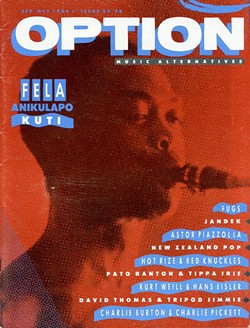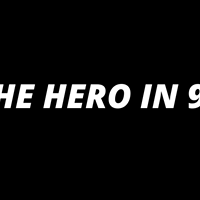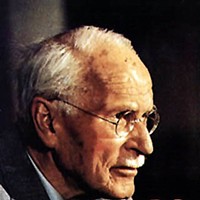The first time I saw the name Fela Anikulapo Kuti, the Nigerian singer and revolutionary was on the cover of Option, a music magazine of which I would later become the editor. It was 1986 and Fela, I learned, was the inventor and main exponent of Afrobeat — a mix of funk, jazz, the West African dance-music style known as highlife and traditional Yoruba folk music.
In the mid-'80s, Option was a fairly obscure magazine whose mission was to open the lens in America to musical styles from around the world — music that bigger publications like Rolling Stone and Spin ignored. In the same issue with Fela on the cover were stories on the New Zealand indie-pop scene, a pair of dancehall reggae singers (Pato Banton and Tippa Irie) and catch-up pieces on The Fugs, Jandek and Argentine tango composer Astor Piazzolla. Not exactly household names.
But with Western pop artists from Talking Heads' David Byrne to Peter Gabriel and Paul Simon experimenting with African and Latin rhythms, the music scenes in Europe and North America were opening up in the '80s to sounds from all over the globe. Still, most fans of what would soon become known as "world music" were more familiar with the accessible African music of the artists who collaborated with Simon on his 1986 album Graceland — like Senegalese singer Youssou N'Dour or the South African vocal group Ladysmith Black Mambazo — than Fela. He remained an obscurity.
By the '90s, when "alternative" became mainstream, Option was putting more well-known names on its covers — Morrissey, George Clinton, De La Soul, PJ Harvey, Nirvana — and Fela was becoming slightly more familiar to fans of American funk, jazz and art rock. But the Nigerian star would never in his lifetime be as popular in America as his revolutionary counterpart in Jamaica, Bob Marley. That's because most of Fela's songs — long, deeply funky jams — made the extended improvisations of acts like, say, the Grateful Dead seem like wind-chime music by comparison. Fela's sweat-inducing blasts of funk lasted from 10 to 20 minutes, and none were as easy to sing along to as Marley classics such as "One Love," "Get Up, Stand Up" or "Redemption Song." Even Fela's most accessible tracks — "Zombie," "I.T.T." and "Army Arrangement" — surpassed the 10-minute mark.
I was at Rolling Stone when Fela died in 1997, from complications of AIDS, and we ran a lengthy piece on his legacy, his complex romantic life and his importance to pan-African music and human-rights activism. Even by then, most Americans were unaware of the particulars of Fela's life. Few knew, for example, that after the release of his 1977 album Zombie — which was highly critical of his country's military — Nigerian troops attacked Fela's commune outside Lagos, viciously beat him and fatally injured his mother, or that in 1984 Fela was jailed on trumped-up charges of smuggling currency.
It would take another 11 years for Fela's life and music to gain mainstream attention. That happened in 2008, when Carlos Moore's book Fela! This Bitch of a Life became an off-Broadway smash. Within a year — thanks to help from Jay-Z and Will Smith — the musical moved uptown to the Eugene O'Neill Theatre, on Broadway, and within yet another year it had been nominated for 11 Tony Awards, three of which it won. Last year, the musical returned to Broadway for another 32 performances.
This week, Fela! comes to Charlotte.
It's been more than a quarter-century since the little-known (but still very much alive) Fela appeared on the cover of the magazine where I began my career as an arts and music journalist, and I couldn't be happier to see his name in big bold letters on the cover of Creative Loafing this week. What makes me even happier is Emiene Wright's terrific story. She explores how the production came together and talks with a member of Antibalas Afrobeat Orchestra, the band that arranged Fela's music for the stage, as well as with Maija Garcia, who helped choreograph the show's fiery dance moves. If you're fortunate enough to catch Fela! at Belk Theater for yourself, you'll also witness former Destiny's Child singer Michelle Williams star as Fela's African-American lover, Sandra Isadore, who introduced the singer and multi-instrumentalist to the writings of black American revolutionaries like Malcolm X.
Fela. Malcolm X. Michelle Williams. What a journey. If you'd told me back in 1986 that a future member of a teen R&B trio would be helping bring Fela's music to mainstream audiences across America two decades later, I'd have said you must be smoking something that's not yet legal in North Carolina.
Speaking of...
Latest in Editor's Notes
More by Mark Kemp
Calendar
-

Charlotte Wine + Food Week Presented by Truist @ Charlotte, NC
-
 Charlotte Knights vs. Syracuse Mets @ Charlotte Knights
Charlotte Knights vs. Syracuse Mets @ Charlotte Knights -

Charlotte Wine & Food Week’s Annual Sake Dinner at Mizu @ Mizu
-

Hands On Cocktail Class Featuring Gin at DTR Southpark @ DTR SouthPark
-

Wine & Paint @ Blackfinn Ameripub- Ballantyne
-
A Beginners Guide To Fishing 1
-
10 Tips For Communicating With Dementia Sufferers
Senior Care Center’s 10 Tips for Communicating With Dementia Sufferers
-
5 profitable business ideas in the cannabis industry 12



















